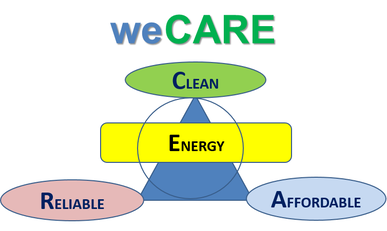Reducing Green House Gas emissions (GHG – usually referred to in terms of CO2-equivalent) to combat climate change, targeting carbon neutrality by 2050, is a core priority for the European Union. Improving energy efficiency, production and use is at the centre of this endeavour.
The EU has ambitious vision, strategies and plans, but the challenge is still very much in front of us when it will come to concrete implementation. There is no silver bullet, no magic solution, making the way to net zero carbon emission easy. On the contrary. If some believe that getting rid of the first grams of CO2/kWh has been quite a challenge already, the way will become harder and harder when further reduction will be at stake.
There is no place for complacency, no time to lose. It is necessary to act now with the means available today already, while, at the same time, speeding up efforts to develop innovative solutions and bring them to market deployment as soon as possible.
Means of today, and solutions for the future need to be very low carbon intensive, in particular in the electricity sector, but also keeping in mind the heat and transport sectors. Innovation is key to success. The usage of fossil fuels needs to be reduced drastically and as soon as possible. Certainly there should be no lock-in of new installations and technologies relying on using fossil fuels, which would leave us with stranded assets for decades to come.
This being said, combatting climate change has to be put into a wider societal perspective, which renders the problem even more complex. Indeed a sound energy policy needs to be based on three pillars: (i) environment, (ii) economics, (iii) security of supply; all three pillars contributing to a sustainable society, where people can live in a clean environment, while having access to affordable and reliable energy, today and tomorrow.
weCARE’s objective is to contribute to a sound, fact based debate on ways and means to successfully reach a very low carbon, all-inclusive, clean, affordable and reliable energy mix in the European Union.
The EU has ambitious vision, strategies and plans, but the challenge is still very much in front of us when it will come to concrete implementation. There is no silver bullet, no magic solution, making the way to net zero carbon emission easy. On the contrary. If some believe that getting rid of the first grams of CO2/kWh has been quite a challenge already, the way will become harder and harder when further reduction will be at stake.
There is no place for complacency, no time to lose. It is necessary to act now with the means available today already, while, at the same time, speeding up efforts to develop innovative solutions and bring them to market deployment as soon as possible.
Means of today, and solutions for the future need to be very low carbon intensive, in particular in the electricity sector, but also keeping in mind the heat and transport sectors. Innovation is key to success. The usage of fossil fuels needs to be reduced drastically and as soon as possible. Certainly there should be no lock-in of new installations and technologies relying on using fossil fuels, which would leave us with stranded assets for decades to come.
This being said, combatting climate change has to be put into a wider societal perspective, which renders the problem even more complex. Indeed a sound energy policy needs to be based on three pillars: (i) environment, (ii) economics, (iii) security of supply; all three pillars contributing to a sustainable society, where people can live in a clean environment, while having access to affordable and reliable energy, today and tomorrow.
weCARE’s objective is to contribute to a sound, fact based debate on ways and means to successfully reach a very low carbon, all-inclusive, clean, affordable and reliable energy mix in the European Union.
Contact us to find out more
|
Marc Deffrennes
Richard Ivens Serge Crutzen |
0032 (0) 478 473 341
0032 (0) 478 843 704 0032 (0) 473 47 49 06 |


